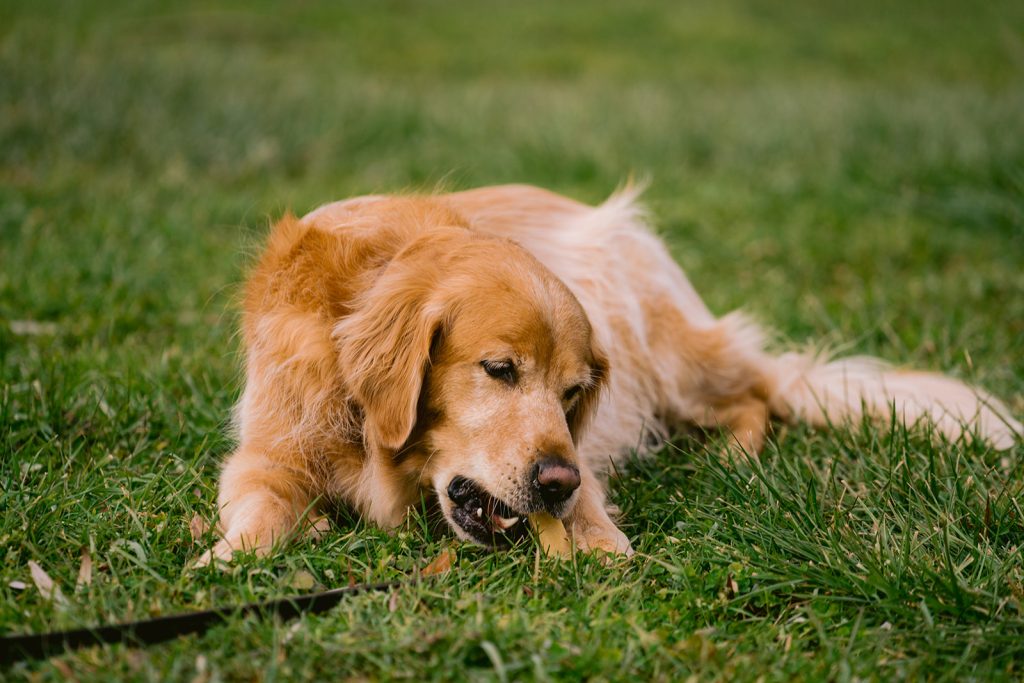Dental conditions are quite common in dogs, especially those lacking proper dental care and taking dental supplements like dog chews. Dental disease is one of the most serious conditions which threatens dogs’ oral health and wellbeing. Medically known as periodontal disease, this condition affects the gum and causes a number of oral issues.
What Is Dental Disease?
Dental disease is one of the cunning health conditions which develop silently and appear when it’s too late. It affects the gums causing their recession, thus leaving the teeth exposed to their root. Unprotected, the teeth can get infected, decay, and even fall off as there’s no gum to keep them in place.
What Causes Dental Disease?
Dental disease is caused by periodontitis bacteria. This bacteria infects the oral cavity and invades the mouth without any visible sign until it advances.
The bacteria develop from food particles left on the teeth as a result of irregular or improper brushing. When the food residues aren’t cleaned well, they turn into plaque, which later hardens and turns into tartar (calculus).
The tartar irritates the gum line and the surrounding areas and causes inflammation. As a result, the gums redden and mild pain appears. This is the first stage of dental disease.
If this isn’t treated right away, the inflammation spreads across the entire gingiva causing other symptoms like bad breath, pain, and loosen teeth. Then, the bacteria enter the bloodstream and affect some of the organs, such as the heart and the kidneys.
Symptoms of Dental Disease in Dogs
Although the dental disease in dogs is visible when it advances, there are symptoms that tell you there’s something wrong with your pup.
The early symptoms of dental disease are:
- Bad breath
- Excessive drooling
- A lot of plaque built up on the teeth
- Irritability
- Difficulty eating
- Reduced appetite
- Discolored teeth (yellow or brown teeth)
- Chewing on one side of the mouth
- Pawing at the mouth
Symptoms of advanced dental disease are:
- Weight loss
- Loose teeth
- Inflamed gums
- Bleeding gums
- Food falling from the mouth
- Lumps, discomfort, or bleeding around the mouth
- Swelling under the eyes
- Bloody saliva
- Teeth falling off
- Chronic pain
- Heart disease
- Health problems affecting the major organs
Treatment of Dental Disease
Advanced dental disease can’t be treated with vitamins, antibiotics, or special foods and supplements. The only way to treat it is by oral surgery.
The dental surgery is as complex as it sounds as it involves various processes, including blood analysis, a set of dental radiographs, and the surgery itself. The surgery involves scaling, lavaging, and polishing the gingiva.
Dental Disease Prevention
While the treatment of dental disease is complex and difficult to handle, preventing it is much simpler.
You can prevent dental disease in dogs by:
- Regular and thorough teeth brushing – Make sure you brush your pups’ teeth every day and thoroughly.
- Dental chews, chew toys, and dog food – The products are specifically designed to prevent dental disease and keep tartar under control. They are a perfect supplement to the daily teeth brushing.
- Regular dental appointments – You should take your pooch to the vet at least once in 6 months. They will check their teeth and see if there’s any problem. They may even spot early signs of dental disease you’ve missed. In that case, they will recommend treatment because early dental disease is treatable without surgeries.
- Professional teeth cleaning – It’s best to take your dog to the vet to clean their teeth with professional tools, especially if there’s plaque built-up on their teeth.
 CA
CA

